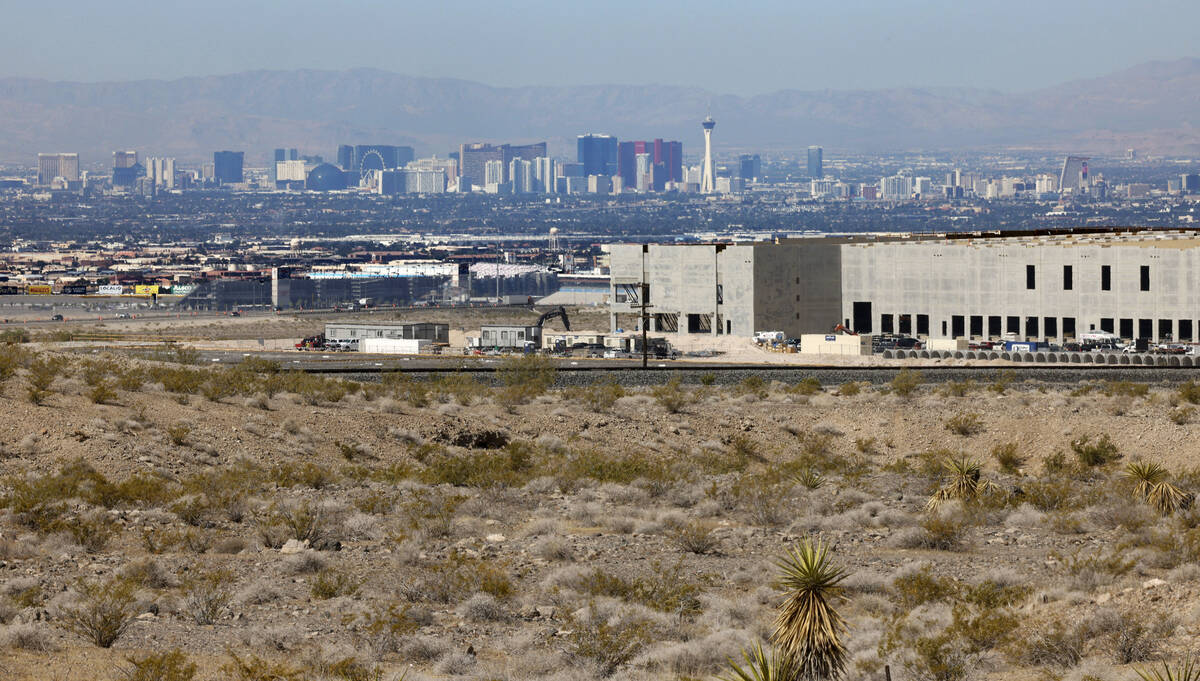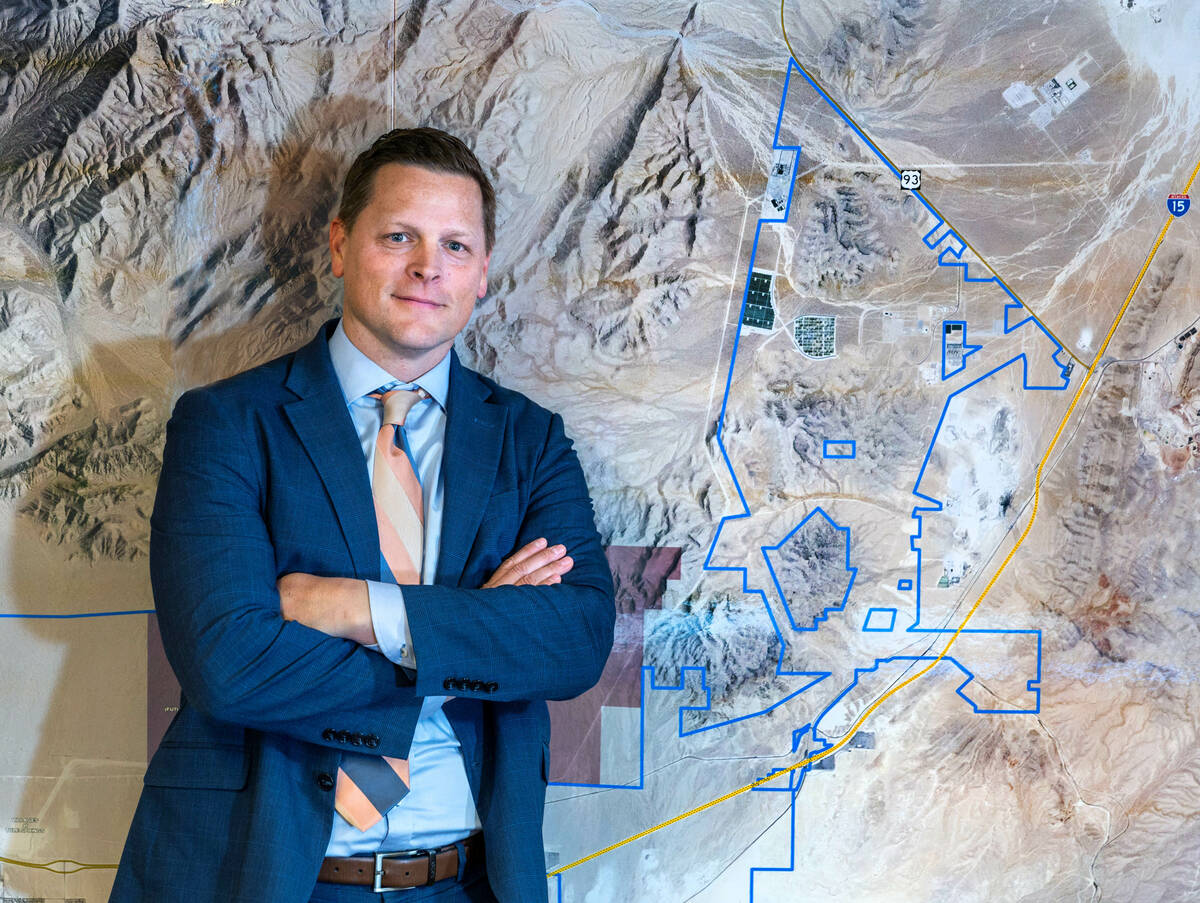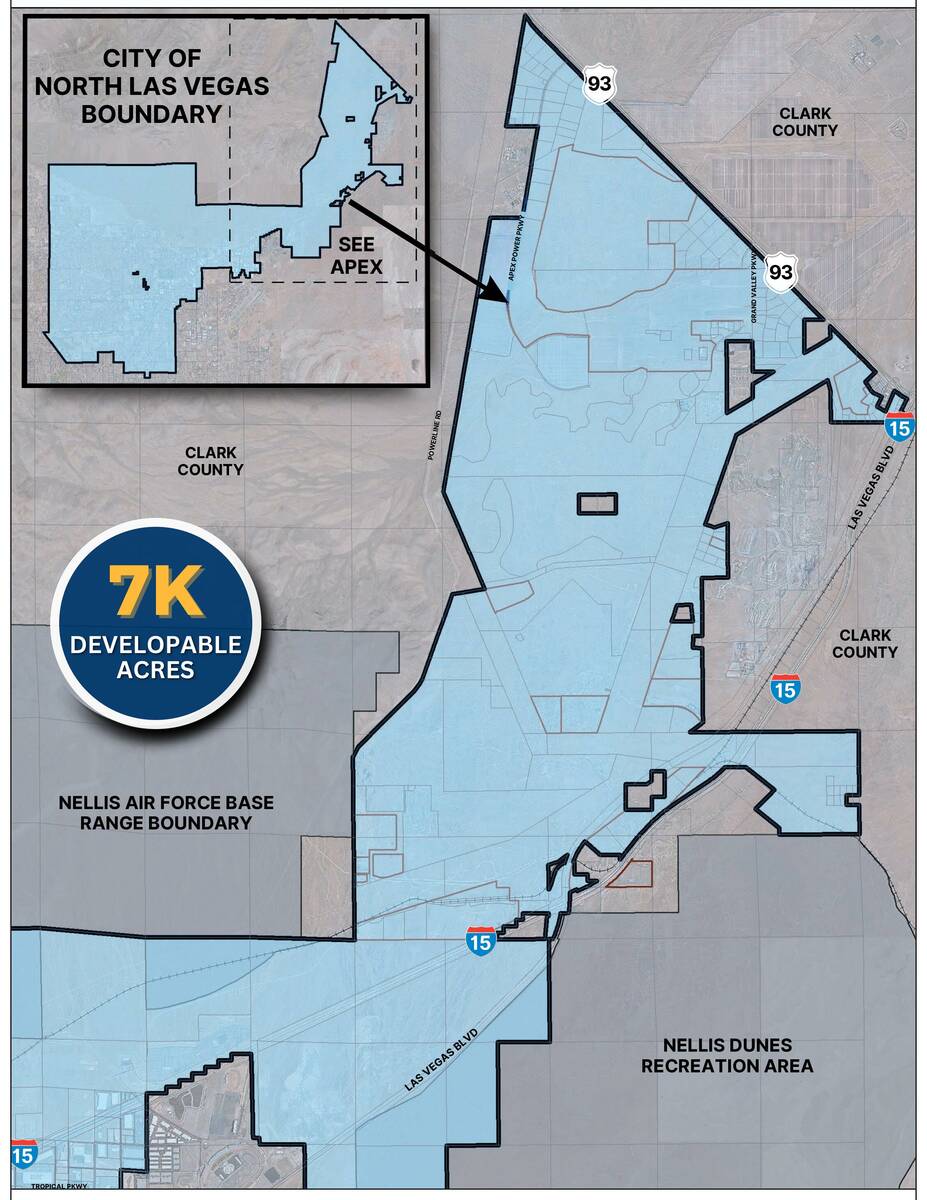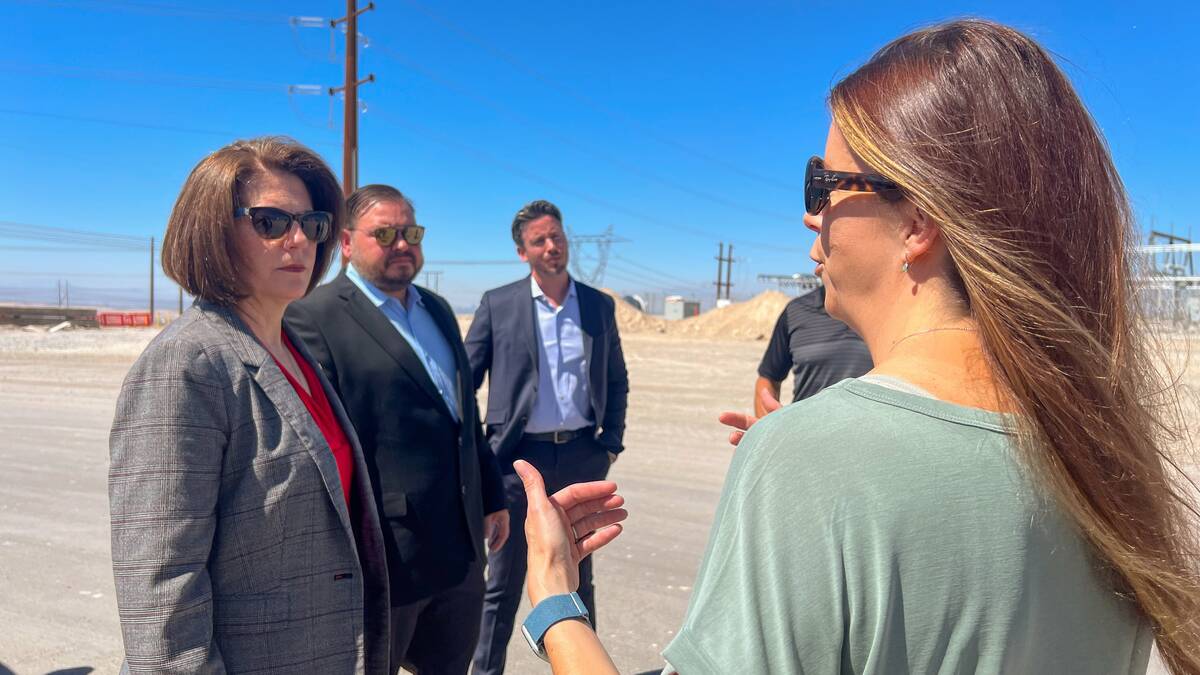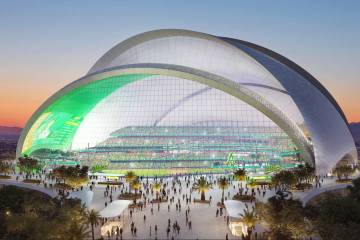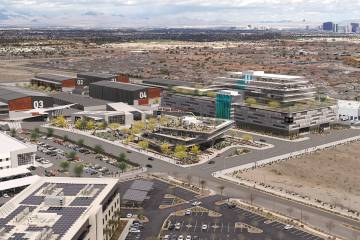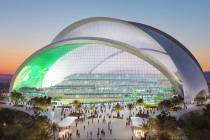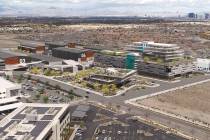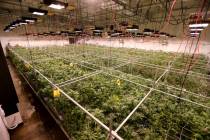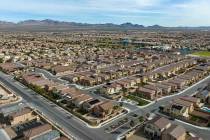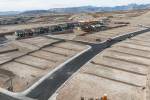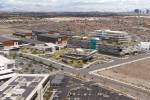Is Las Vegas finally ready to become an industrial powerhouse?
A major industrial park in North Las Vegas is finally kicking into high gear and securing high-paying employers after more than 30 years of development.
Located off Interstate 15 at U.S. Highway 93, the 18,000-acre Apex Industrial Park has about 7,000 acres left for development and is adding new tenants and owners at a speed never seen in its history.
Six large projects are currently underway at the park, encompassing 1,800 acres and 9.8 million square feet, and Jared Luke, director of government affairs and economic development for the city of North Las Vegas, said accompanying this is a wave of skilled workers filling the job openings or relocating to the Las Vegas Valley to work there.
Luring skilled labor, companies
Roughly 20 additional companies are in talks to locate at Apex, he said.
With the continued development of Apex, North Las Vegas has become a primary market for companies looking to open industrial facilities, Luke said.
And it’s showing in the numbers.
Nevada is currently leading the nation in job growth and experiencing an uptick in college-educated workers moving to Clark County in particular.
Southern Nevada added 5,700 industrial jobs between May 2022 and May of this year, according to the latest report from the Nevada Department of Employment, Training and Rehabilitation. All industrial subsectors saw job growth, with the largest increase being in construction, which added 5,400 jobs. The Las Vegas Valley saw the most job growth in education and health care, followed by construction, services and leisure and hospitality, signalling a shift in the market away from the valley’s traditional breadwinners in casinos and gaming.
Additionally, roughly 115 people are moving to Clark County every day, according to a new report from UNLV’s Center for Business and Economic Research. The county is expected to gain 42,066 residents this year alone.
Andrew Woods, the center’s director, contends that Nevada’s future workforce is largely going to be coming from outside of the state. Las Vegas is competing with other secondary U.S. cities, including Phoenix, Salt Lake City, Denver and Austin, to lure highly skilled workers, he said. This will be the challenge for Apex as it competes nationally with other cities’ growing industrial sectors.
The city of North Las Vegas has already attracted several high-profile companies to Apex, including a HeyDude distribution center that’s set to open later this year, a distribution center for Smith’s parent company Kroger and an AirLiquid liquid hydrogen plant, representing a total of $126 million in capital investment, 203 acres developed and more than 470 jobs created with an average wage of $27.35 an hour.
Additionally, aluminum beverage can maker Ball Corp. unveiled plans in 2021 to build a plant at Apex and developer VanTrust Real Estate bought roughly 350 acres the same year with plans for a 4.5 million-square-foot industrial park there.
Luke said Apex is luring companies and the entire Las Vegas Valley is benefiting from industrial job growth in the process.
“I think that’s kind of been a misconception about the Las Vegas Valley is that we don’t have a skilled labor force,” he said. “With all of the folks moving into the valley in the last 10 years, and the growth in charter schools and the growth in technical academies, and then the additional curriculum that UNLV and the College of Southern Nevada has now, they’ve been accounting for that work gap.”
One of the massive drivers for creating skilled workers over the past few years has been UNLV. Marta Meana, a professor of psychology and part of the university’s Strategic STEM (science, technology, engineering and mathematics) Initiative, said several programs have been developed to help bolster the valley’s skilled labor force, including Young Rebels, a summer program for K-12 students and the entrepreneurial President’s Innovation Challenge. Plus, millions of dollars in funding from the National Science Foundation has gone to STEM education in Nevada.
UNLV’s College of Sciences and Engineering also continues to growth with the Advanced Engineering Building set to open in January 2024.
“That’s just the tip of the iceberg, but it is more about growing our STEM workforce than luring them from somewhere else,” Meana said. “That is UNLV’s focus. On the other hand, skilled workers are more likely to move to cities where they know that their children will get a strong STEM education.”
Championing Apex
One of Apex’s biggest political supporters Sen. Catherine Cortez Masto, D-Nev., recently introduced legislation to cut through some of the red tape associated with developing Apex. Her bill is designed to streamline and speed up the development process and promote economic growth by allowing North Las Vegas and the Apex Industrial Park Owners Association to issue permits and get new and existing businesses the utilities they need to operate. Rep. Steven Horsford, D-Nev., has introduced companion legislation in the House of Representatives.
“Apex Industrial Park is creating hundreds of new, good-paying jobs in North Las Vegas, and I’m working in the Senate to make sure Nevada workers have the resources, skills, and support they need to fill them,” Cortez Masto said. “I’ll always support Nevada’s world-class universities, job training programs, and community colleges who are preparing our workers for the jobs of the 21st century.”
John Ramous, a Nevada region partner for Reno-based developer Dermody Properties, helped LogistiCenter at Miner’s Mesa, a 664,300-square-foot logistics facility, get set up at Apex, and the complex is expecting to open sometime in the third quarter of this year.
Despite Apex’s long history, Ramous said the park first started gaining traction in 2008 when the city of North Las Vegas was able to begin buying land from private owners and annex it into the city limits. But this was just the first step in a multistep process of setting up the infrastructure, such as utilities and roadways.
“We always say Nevada’s got a lot of land but then unless you can develop it or it’s ready to be developed, it’s almost meaningless from an economic development standpoint because unless you have the infrastructure, water, sewer, gas, you’re not going to be able to bring any new customers or economic vitality to the area.”
Contact Patrick Blennerhassett at pblennerhassett@reviewjournal.com.



